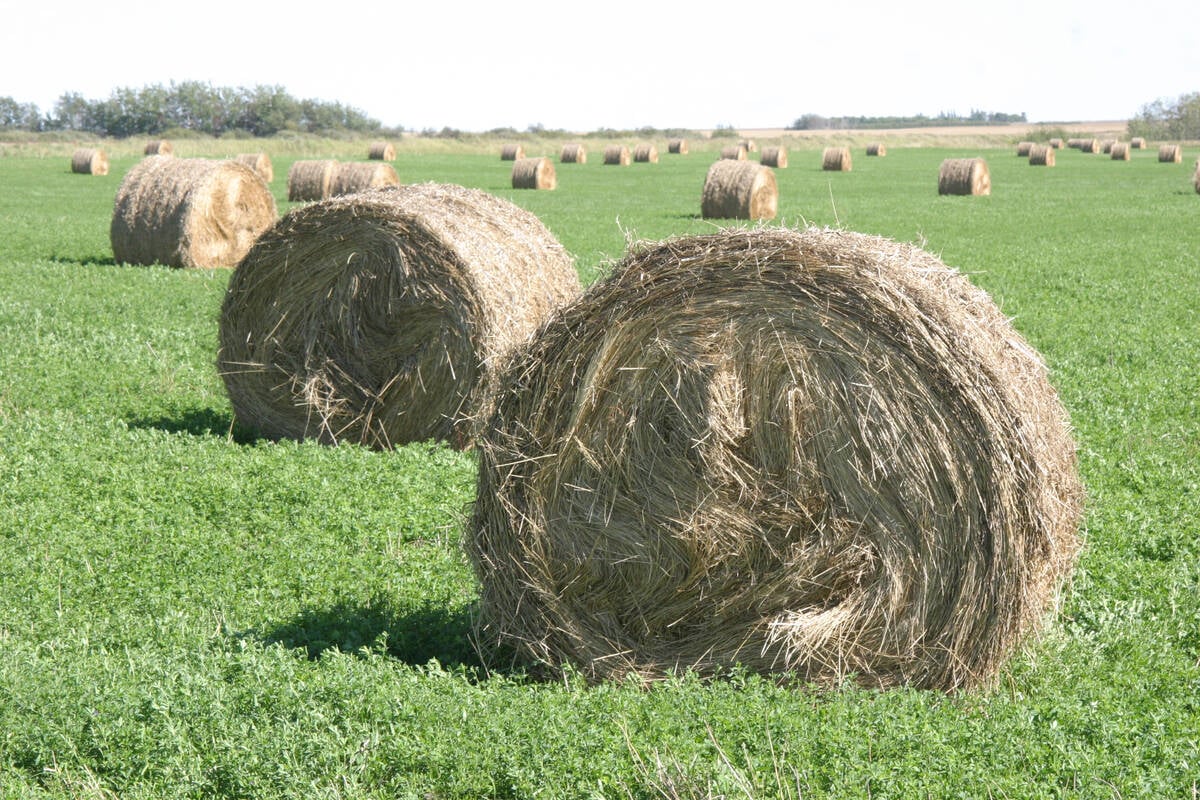BROOKS, Alta. – Back in 1966, Garnet and Faye Altwasser probably never expected their feedmill to grow into Lakeside Farm Industries, a company with annual revenues of nearly $1 billion.
Located on the outskirts of Brooks, Alta., Lakeside is a leader in the Canadian beef business in the heart of southern Alberta’s massive feeding industry.
On Aug. 20 it officially opened a major expansion of Lakeside Packers, allowing it to handle one million head a year, or one-third of all fat cattle in Canada. That means 2,300 workers process 4,000 head per day.
Read Also

Breaking down successful winter feeding into six steps
It’s that time of year when it is important to start planning for a cow herd’s winter feeding program. Here are six steps I think are necessary to consider when getting your feed tested.
The plant’s sister company, Lakeside Feeders, supplies 200,000 head annually.
In addition to the packing plant and feedlot, Lakeside owns a number of fertilizer outlets and feed companies in southern Alberta.
Lakeside was purchased by IBP Inc. three years ago, and the American beef giant injected $100 million into plant expansion.
“The first year I spent most of my time trying to talk these guys into scaling their plans down,” said Altwasser, who remained president after the takeover of the privately owned company.
Before the buyout, the packing division was strictly a carcass plant. Today, operations are multi faceted.
The IBP investment enabled a boxed beef plant to open in 1997. A second shift of workers started in October 1998.
With two shifts, the plant grinds 300,000 pounds of beef daily, and sends out 75 container loads of carcass beef and another 18,000 loads of boxed beef every week. In addition, byproducts like offal, blood products, gelatin and hides are shipped weekly.
“This plant is like managing six individual processors, but there’s a lot of value in having them all under one roof,” said Altwasser.
“The plant will continue to expand into additional processes,” he added. That may require more construction.
An employee vote at the end of July rejected unionization through the United Food and Commercial Workers. The union received 29 percent of employee support while the other 71 percent voted against the union.
The plant was organized at one time and faced a major strike in 1984. Workers were eventually replaced with outside employees and the plant continued operations.
The company pays $65 million per year in wages for 2,300 employees, many of whom have moved to Brooks from as far away as Newfoundland, Asia and Africa.
The plant needs 150 more to complete the staff, mostly on the processing line. Recruitment is ongoing to find new workers and handle employee turnover.
Tussle with town
The massive growth has created some conflict with the surrounding communities of Brooks and the County of Newell in terms of housing shortages for workers, smells, dust and additional traffic to and from the feedlot and packing plant.
The relationship with neighbors is “up and down,” said Altwasser.
Waste management has improved, the feeding pens have been moved away from the Trans-Canada Highway and a sprinkler system was installed at the feedlot to control dust.
Bob Peterson, IBP Inc. chief executive officer, was visiting Brooks last week to mark the opening of the expanded plant.
He started with the company as a cattle buyer in 1961 when it was known as Iowa Beef Packers.
After almost 40 years of operation, the international company has 42,000 employees producing beef, pork and processed products like pizza and soup. The company was the first to package beef in boxes and has grown into the world’s largest meat packer.
Today, one out of every three steaks and one out of every five pork chops eaten in the United States comes from an IBP plant, said Peterson.
Since it took over Lakeside in 1995, IBP has set up sales offices in Western Canada and in Ottawa to form links with customers in the east.
“Lakeside is a major investment for IBP,” said Peterson.















